December 11, 2024 – For over a decade, WPDI has been developing and nurturing a very international platform in order to foster the conditions for lasting peace in communities that need support. The central idea is to give these communities – especially youths and women – the tools to develop sustainable practices at the grassroots level. To achieve this ambitious goal, we partner with local organizations and schools to ensure the attitudes we aim to develop become engrained from an early age.
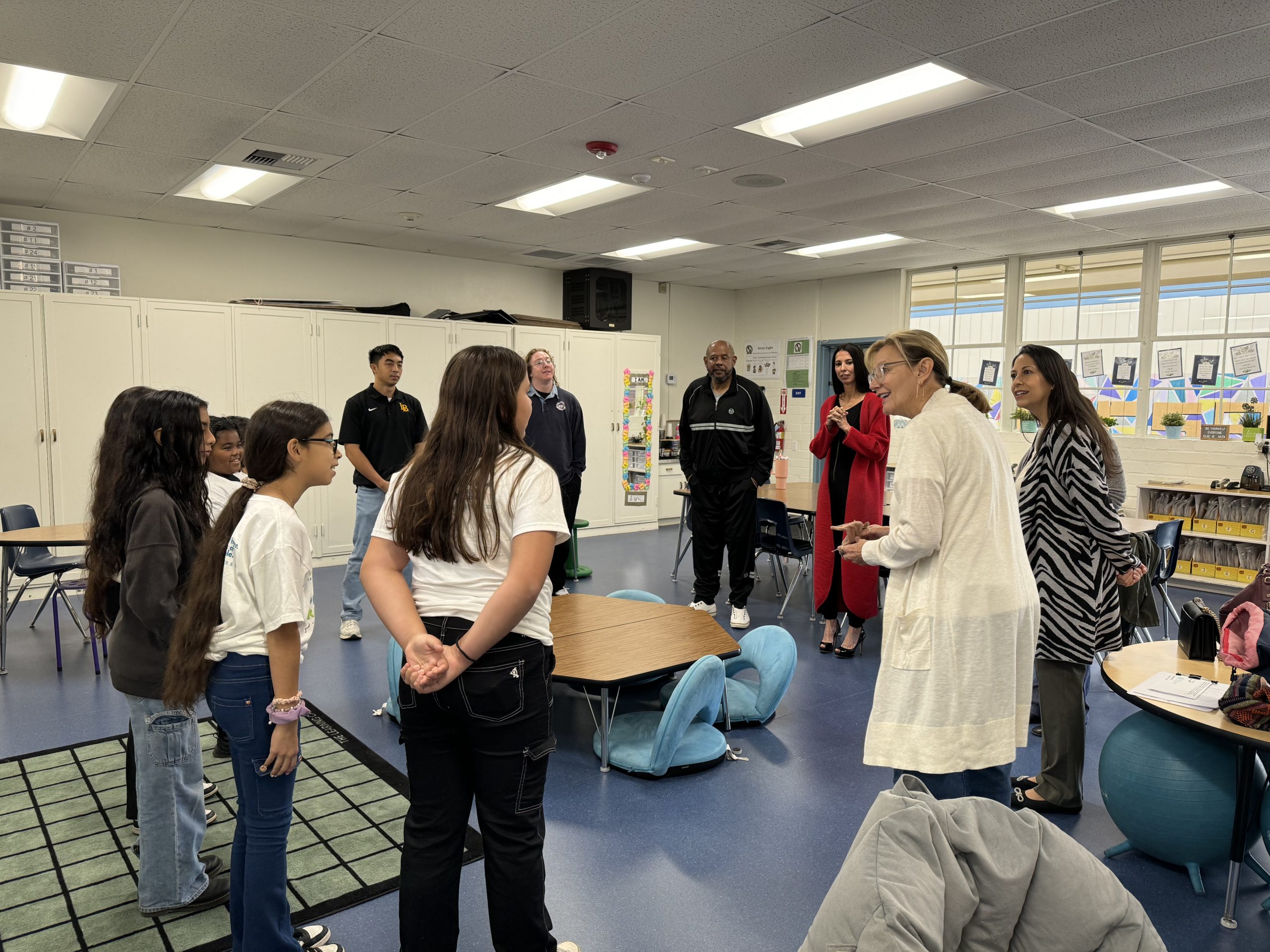
For our top leadership, it is important to pay regular visits to these different teams and programs around the world to take stock of local developments and better understand the constantly changing and evolving challenges faced by different communities. In November, our CEO Forest Whitaker and Executive Director Caroline Descombris, who was accompanied by her Chief of Staff, Valentine Goret, traveled to California in the US, where they visited schools participating in our Domestic Harmonizer Program. Following this, Caroline and Valentine continued on to Chiapas, Mexico, to meet with our teams and beneficiaries, including a new cohort of Youth Peacemakers, trainees at our Community Learning Center, local partner schools, and small businesses that we proudly support.
Los Angeles, Home of Our Domestic Harmonizer Program
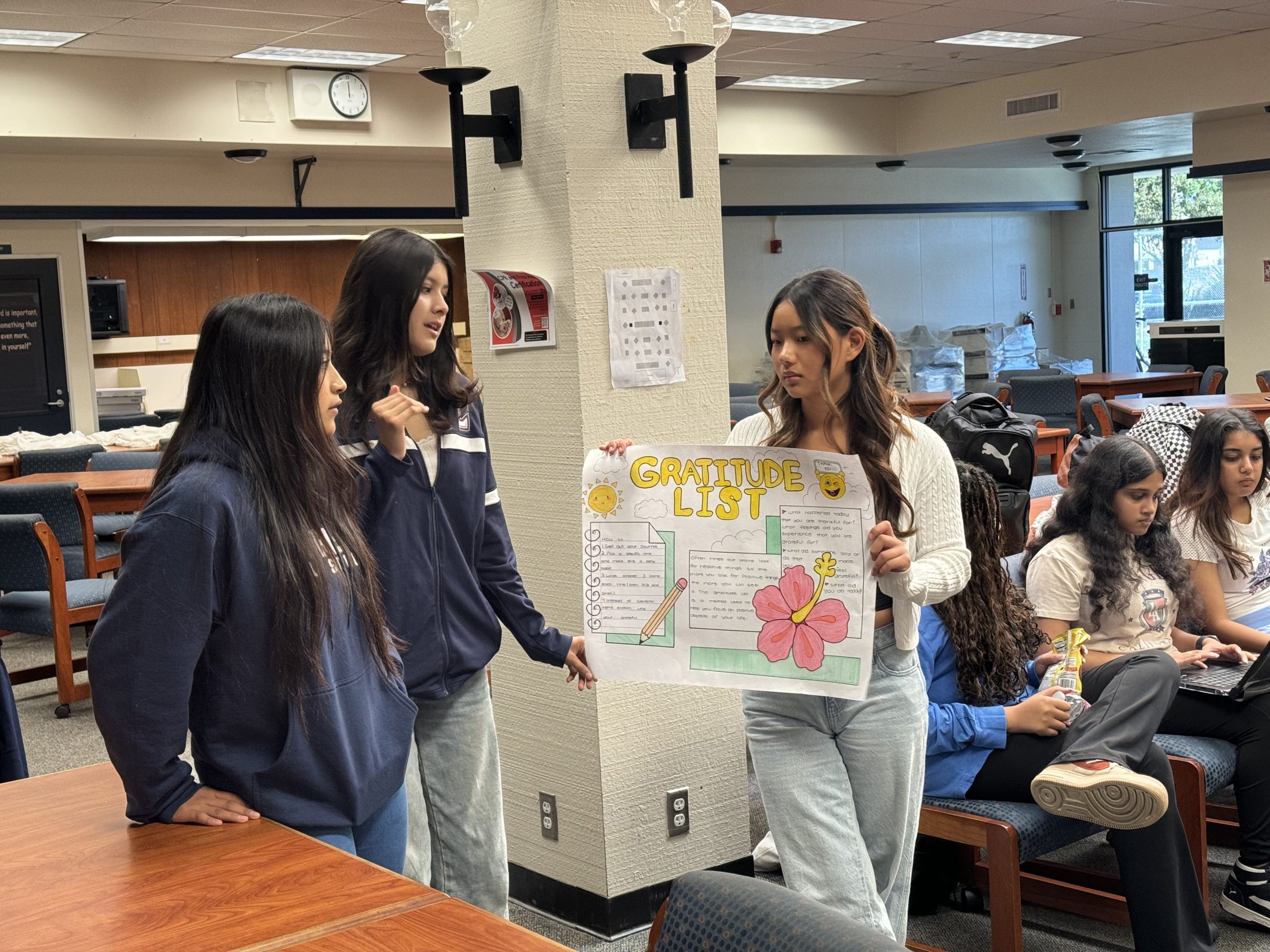
WPDI has a special connection with Los Angeles, the hometown of our CEO and Founder, Forest Whitaker. It is there that, upon launching WPDI, we initiated the Domestic Harmonizer Program (DHP), which aims to foster peace within school communities. The program teaches communication skills and restorative practices, including conflict resolution, negotiation, peer mediation, social-emotional learning, and dialogue. By equipping students and teachers with these tools, partner schools can better maintain healthy learning environments and resolve conflicts peacefully and constructively.
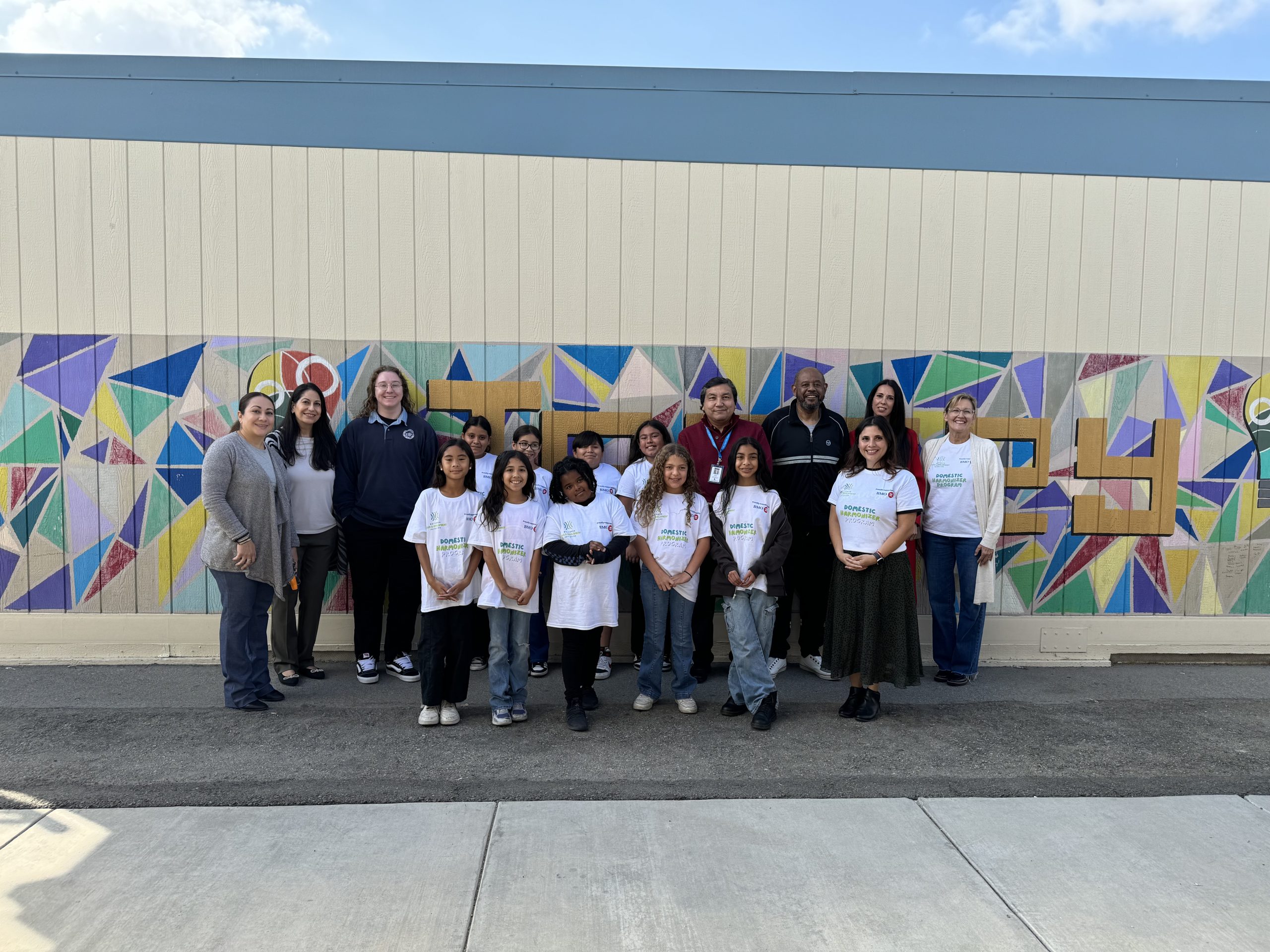
From its very first years, the success of the program has been measured through the positive responses it generated among individual participants who can directly contribute to making their classrooms and their schools more peaceful and conducive to academic success. Based on these positive results the program has now extended partnerships to other schools of southern California, as well as the Northwest Educational Services District in Washington State. We have also expanded the scope of our services to include mental health and to work with parents, all of which make us more effective to address issues arising in the school communities.
Assessing the impact of these new services was a key part of our team’s visit, which included visits to local schools, both elementary and high schools, where the DHP has been deployed. As a special surprise for the students, the presence of Forest Whitaker allowed them to exchange with him on the merits of peer mediation and how this has helped achieve more peaceful conditions in their classroom, their school and their personal environment. The students also showcased their skills through mediation exercises, demonstrating their ability to apply conflict resolution techniques to real-life school scenarios. Beyond the evaluation of the progress made by the program over the recent years, its most striking outcome could be measured by the incredibly positive feedback we received from school management, counselors and teachers.
Building Peace at the Grassroots in Chiapas, Mexico
Our Executive Director and Chief of Staff then flew to Mexico to meet with our local coordinators, partners, youth activists and beneficiaries in the Chiapas region. The visit started off at our Community Learning Center in San Cristóbal de las Casas, where they had the opportunity to meet with local teachers who were graduating in Conflict Resolution Education after completing their training program this year. They shared how the program has helped them to address conflict both in their personal and professional lives.
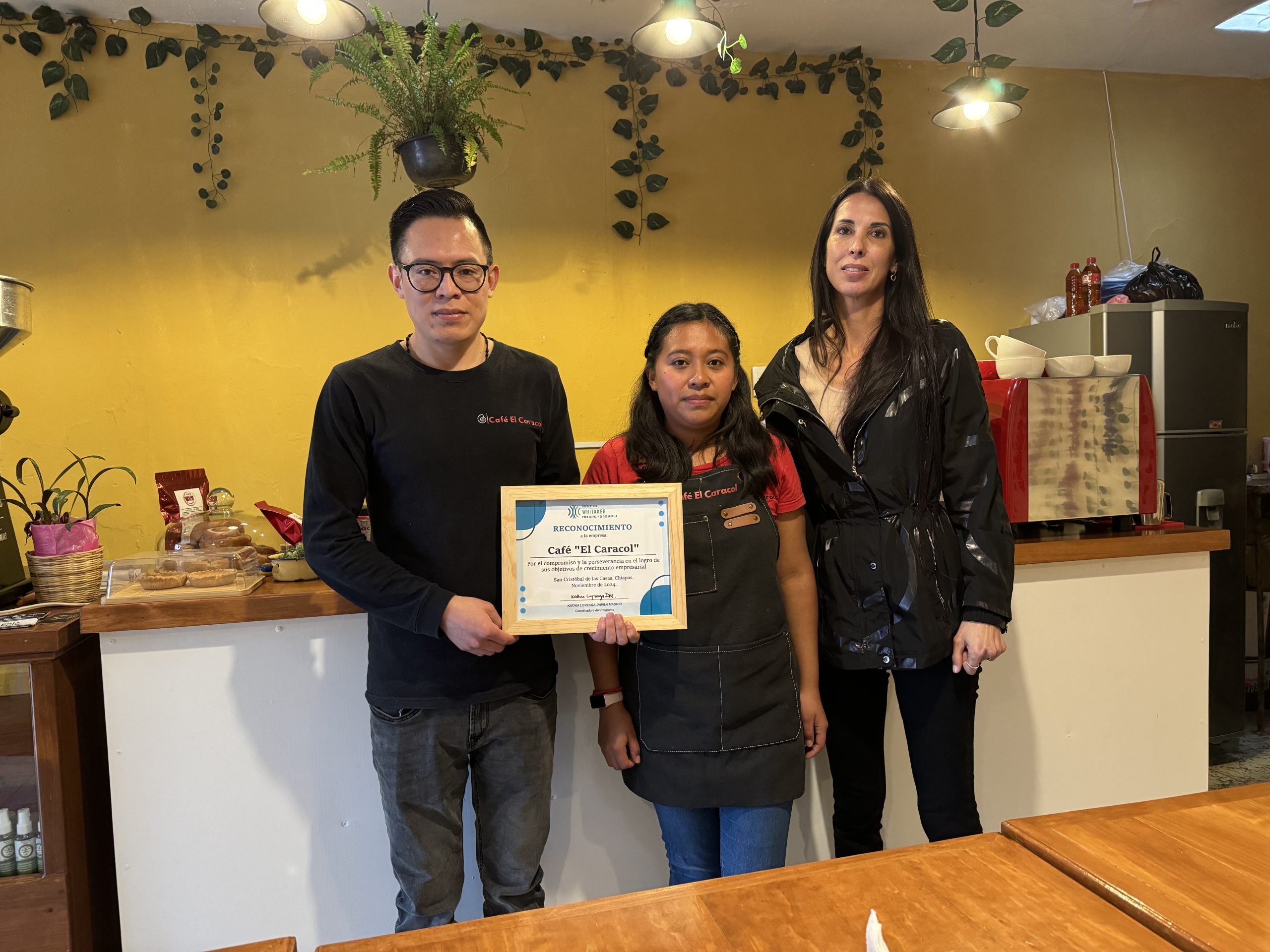
In addition to conflict resolution, we also put real resources into Business & Entrepreneurship programs, because developing conditions for economic growth and stability is crucial if lasting peace is to be achieved. The visit was therefore a great opportunity to meet with small business owners supported by WPDI in the town. Beyond each of these businesses is a journey that started with a grant secured through one of our Business Plan Competitions, which provide winning projects access to seed funding in order to launch their business. In addition, the support of WPDI includes the provision of funding as it includes the delivery of monitoring and backstopping services that are key to ensure the long term profitability and sustainability of the ventures we incubate.
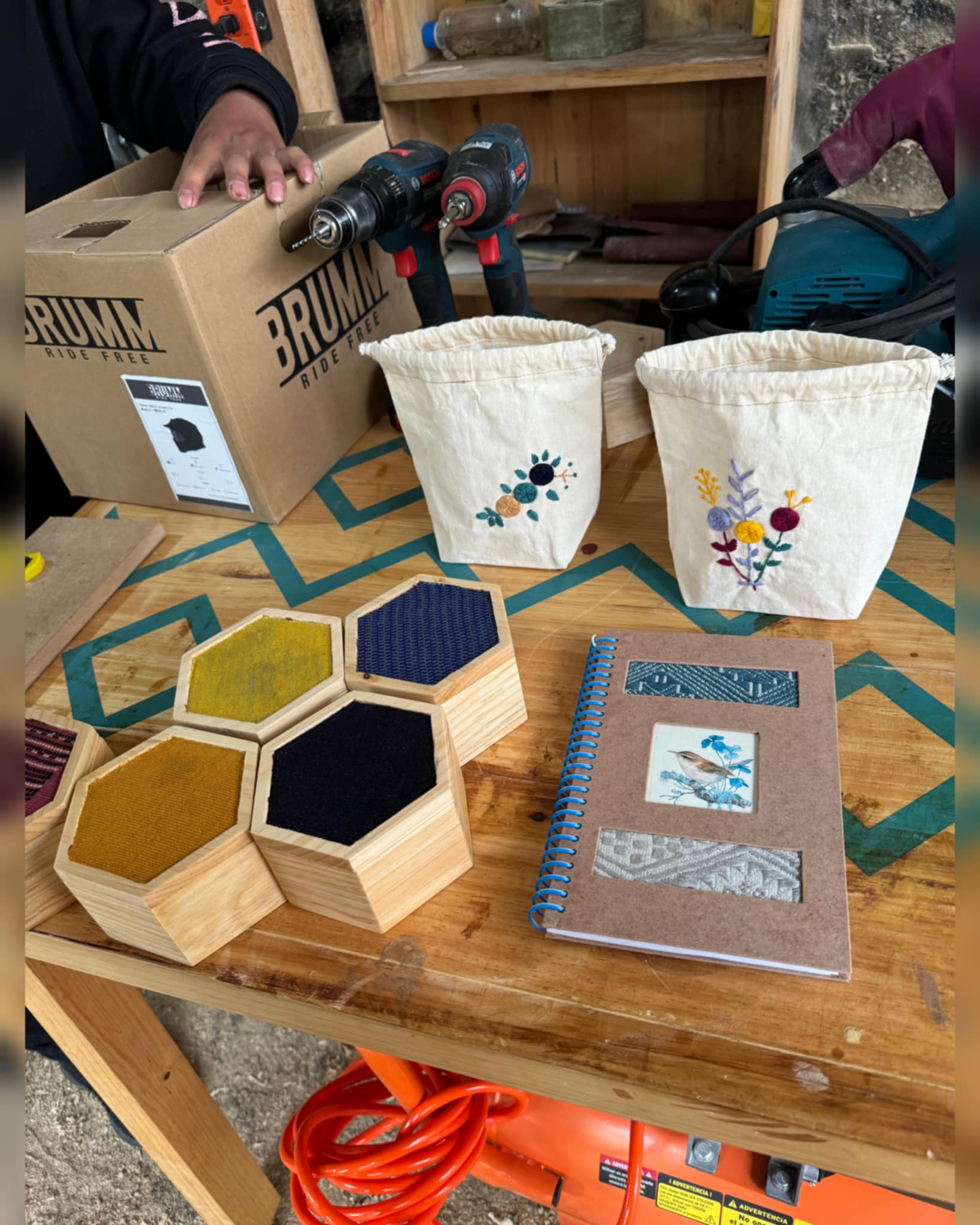
Our team was able to witness the entrepreneurial success of the businesses they visited directly, as well as their positive impact on the overall development of their host communities. Some businesses have taken to hiring local employees to help with their day-to-day operations, while others collaborate with local organizations to train people of all ages. One notable partnership is one between Susana and Israel’s woodcraft business, Yo’on Té, with a women’s charity focused on traditional indigenous fabric designs. Together, they developed a special collection that highlights and celebrates a rich cultural heritage.
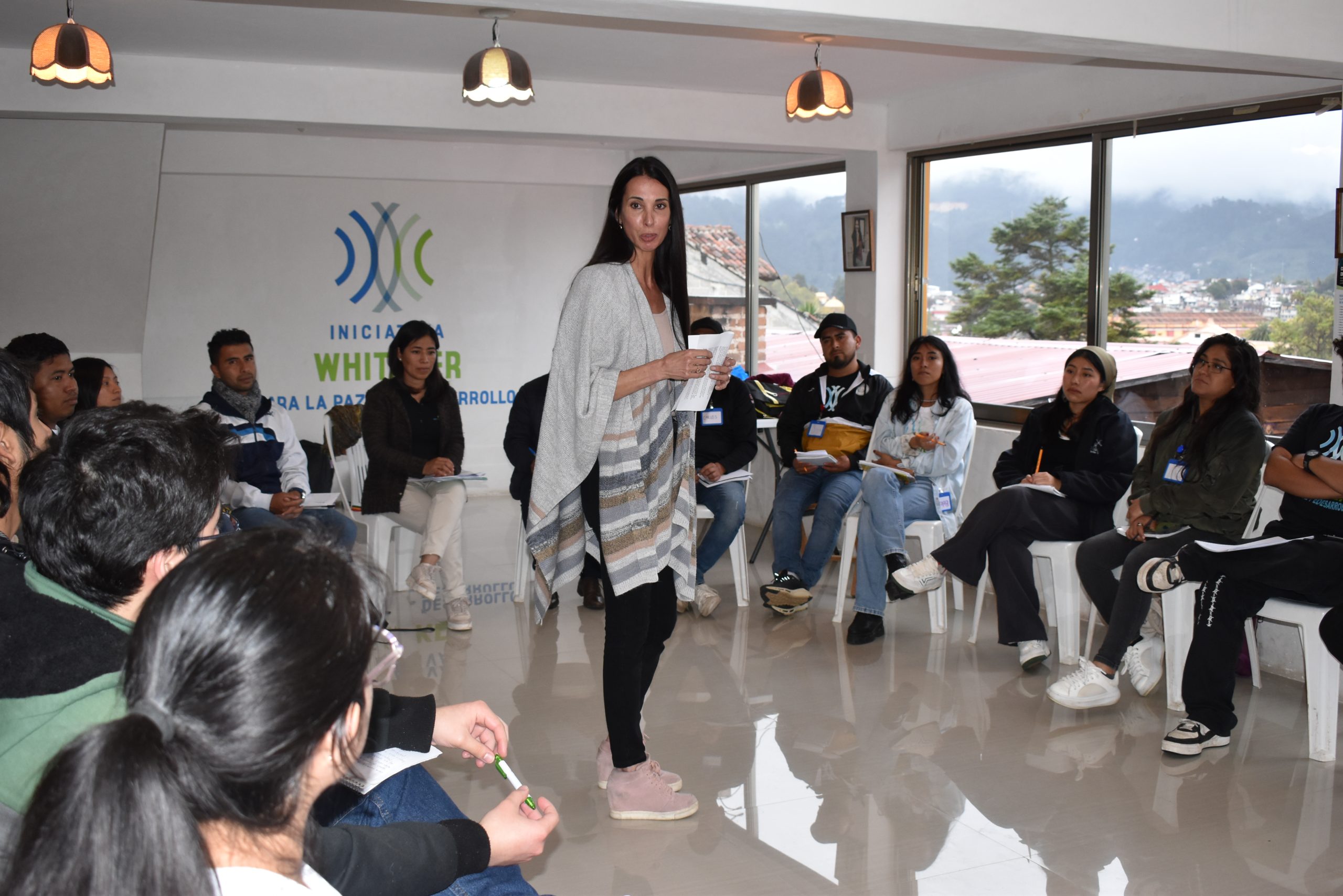
Back at the Community Learning Center, the Executive Director met with our latest cohort of Youth Peacemakers who recently graduated to become leaders in local societal transformation. The meeting was a chance for them to share why they joined the program. For many, it was about empowerment, giving the community a voice, and creating lasting change in the community.
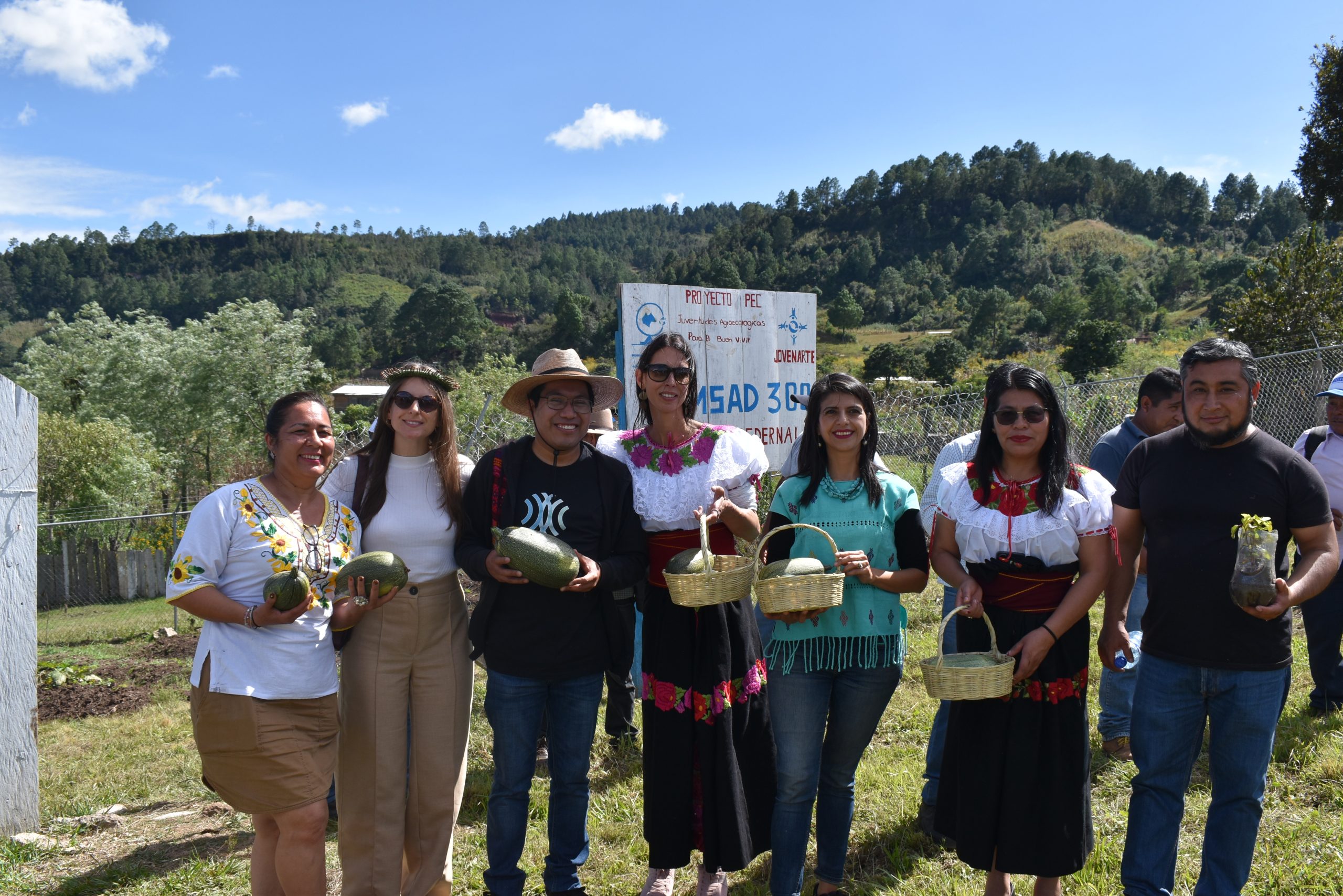
The team then traveled up to San Pedro, a community in Huixtán, where WPDI has been running human rights and peace training, as well as visual arts and music programs at a local school. The Executive Director received a very warm welcome from locals, as a ceremony was organized for their visit, which included music, dance and traditional attire. The ceremony was followed by a visit to a local community garden.
Lastly, the Executive Director rounded off her visit with a special graduation for Business and ICT trainees, during which graduates showcased their products, which were mainly focused on traditional arts and crafts.
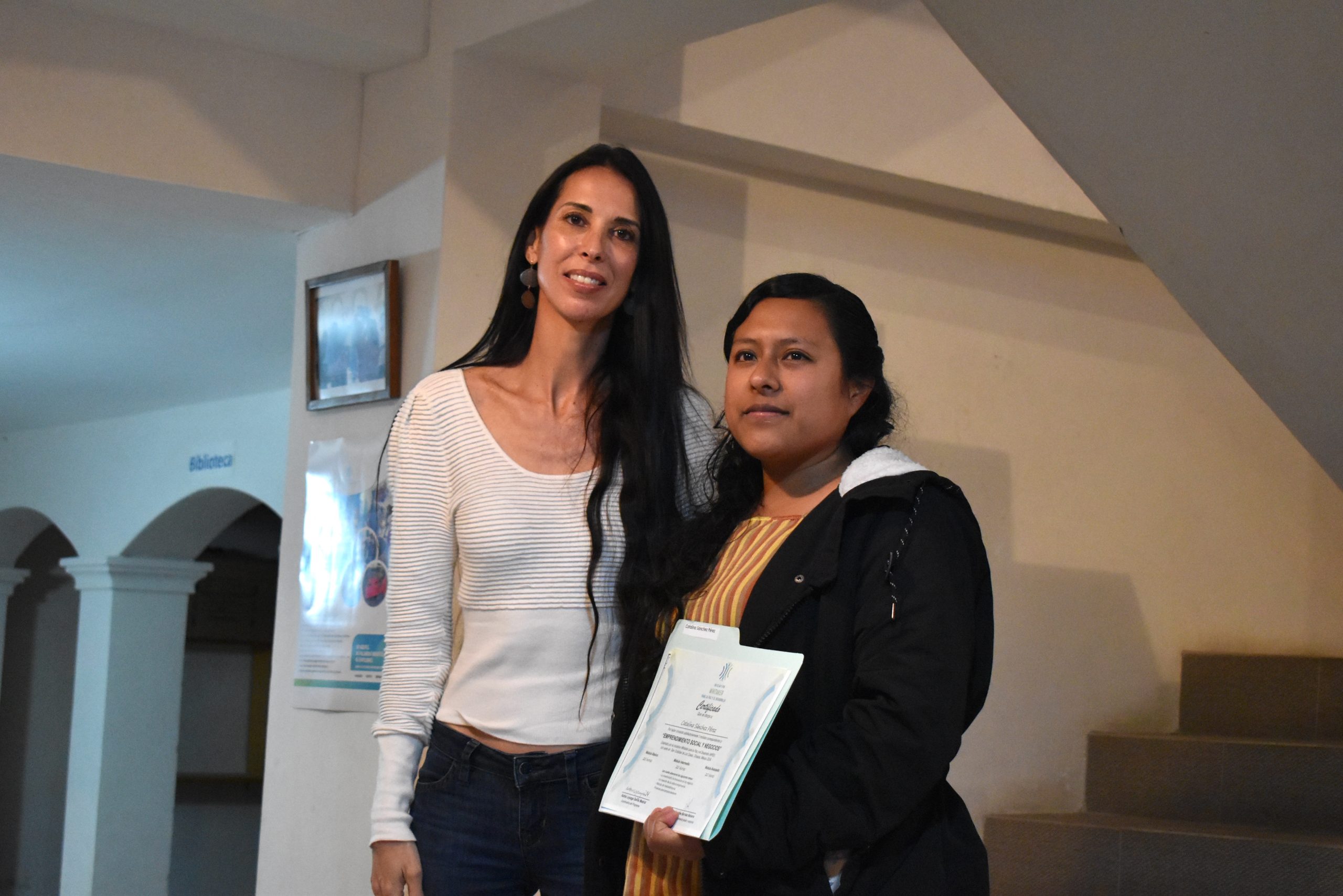
Such visits to our programs at the grassroots are key for reinforcing WPDI’s capacity to foster peace and sustainable development through education, training, and community empowerment. By engaging directly with local teams, Youth Peacemakers, and beneficiaries, WPDI leadership gained invaluable insights into the impact of its programs and the evolving needs of the communities it serves.
Our programs in the United States are supported by Verizon and the Bank of Montréal, our programs in Chiapas, Mexico are supported by the Inter-American Foundation.